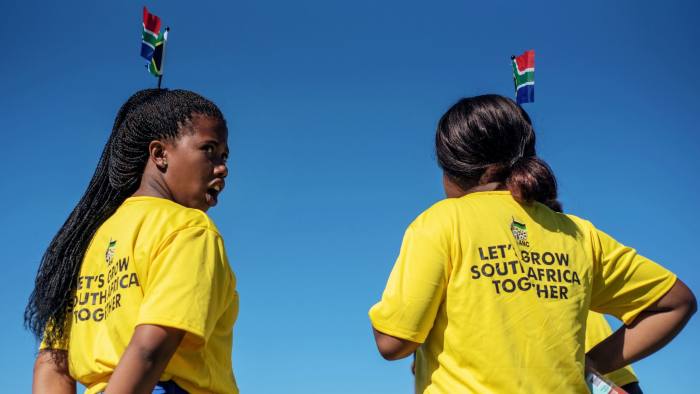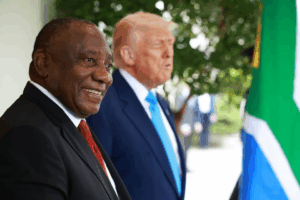
The vast numbers of people who stayed away, the clear majority, have shown no stomach for a rotten ANC, its mirror image in the EFF, or the right-wing options of the DA, the IFP and ActionSA.
KwaZulu-Natal has always been a politically significant province. During the Jacob Zuma period, the country was, as journalist Niren Tolsi noted, in effect run from Durban.
The province continues to have a huge influence in the ANC as a result of its high number of branches. It has exported its penchant for political violence into other parts of the country, leading some to observe that “South Africa has a KZN problem”.
At the time of writing, the votes in the 1 November election had not been completely counted – but there were clear trends. The most dramatic is that, following trends in the rest of South Africa, huge numbers of people stayed at home in disgust at the collapse of the ANC’s political integrity.
KZN had about 5.4 million registered voters out of a potential 7.5 million million eligible voters. With a 30% turnout it means that only about 1.6 million people voted. Of that, the ANC is expected, at the time of writing, to get about 730,000 votes (of 7.5 million eligible voters). This means that the ANC has the support of only around 10% of the electorate. Interesting coalition talks lie ahead.
This is an indictment for a party that was once held so dear by so many and has now collapsed, perhaps irreversibly, into outright gangsterism in KwaZulu-Natal, resulting in a collapse in service delivery and leaving many smaller towns in ruins.
The big story in the province is the dramatic decline in support for the ANC. Support for the party is set to drop to close to below 50% in the eThekwini Municipality.
It was not a good election for the Zuma family. Duduzane Zuma lost to the DA in the ward that he contested in Durban. In Nkandla, the IFP won by a large majority. ActionSA made a strong showing here and there, the IFP continued its return, and the EFF made significant strides.
At the time of writing, the DA appeared to be bucking national trends and was set for a slight increase in support in Durban.
Votes for ActionSA and the IFP are a local version of the general swing to the right seen nationally and indeed internationally. Votes for the EFF show that, although there is some support for RET-style politics, it is limited, especially if EFF votes are looked at in terms of the total number of potential voters.
The small increase in support for the DA is probably driven by a desperate desire to oppose the ANC at all costs. Despite the party’s appalling posters in Phoenix, it has not been uncommon to hear black professionals say they were going to hold their noses and make a tactical vote for the DA with the sole purpose of giving the ANC a wake-up call.
But the vast numbers of people who stayed away, the clear majority, have shown no stomach for a rotten ANC, its mirror image in the EFF, or the right-wing options of the DA, the IFP and ActionSA.
Most people who stayed at home would probably have voted for the ANC if it could, although it now seems highly unlikely, “self-correct”. But with millions of unemployed people, especially young people, the political market must be wide open for a credible left alternative. Clearly, this is the most pronounced gap waiting to be filled in electoral politics.
There are a number of left organisations with significant membership in the province. This includes the trade unions of Cosatu and Saftu, the SACP and, of course, Abahlali baseMjondolo, which is a powerful actor in Durban and some of the smaller towns in the province.
If all these organisations could put aside their differences and form some sort of left party, a large number of the people who didn’t bother to register or vote could be attracted back into participation in electoral politics. Existing voters, disenchanted with the ANC, would have an option on the left and the existing options on the right. DM168
This story first appeared in our weekly Daily Maverick 168 newspaper .
Dr Imraan Buccus is senior research associate at the Auwal Socio-Economic Research Institute and a postdoctoral scholar in gender justice, health and human development at Durban University of Technology.


